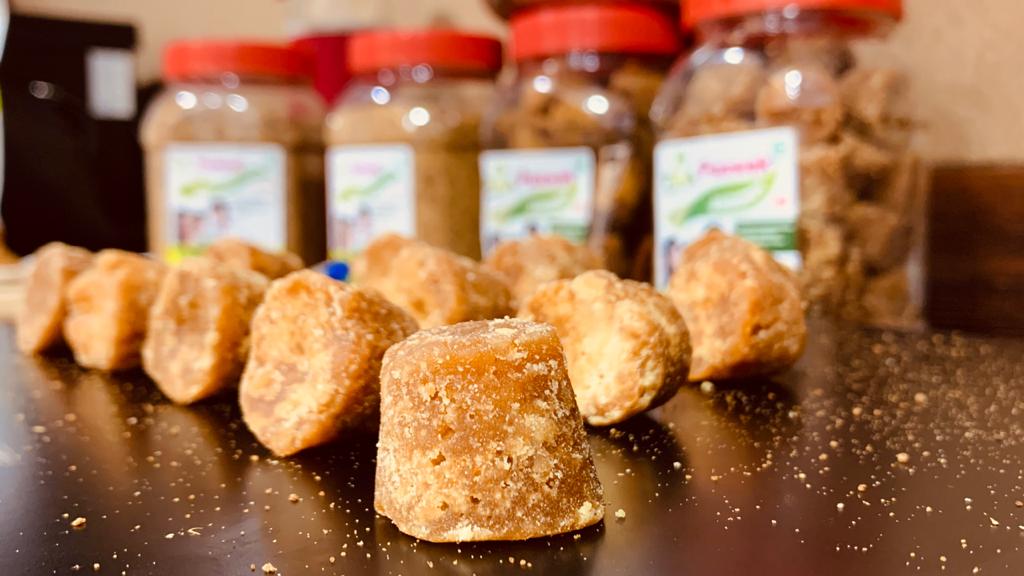Your cart is empty now.

Jaggery and health
- 09 November, 2022
- paawak foods
The natural sweetener jaggery (also known as gur) is made by condensing sugarcane juice and other sweet fluids into a solid or semi-solid state, either with or without previous juice purification and the addition of any artificial additives, chemicals, or preservatives. Jaggery comes in three different forms: granular jaggery, liquid jaggery, and solid jaggery.
One of the oldest sweets known to man is jaggery, which is a staple of the diet in many nations like India, particularly in rural areas. Thus, it used to be referred to as the poor man’s sugar. However, beneficial effects of jaggery are gaining attention in the recent times. The micronutrients in jaggery have a wide range of medicinal and nutritional effects, including anti-carcinogenic and antitoxic action. Also, jaggery has demonstrated to be more effective than sugar due to its immediate energy production, ability to prevent insulin resistance, abdominal obesity, and other chronic diseases.
Jaggery is considered a food ingredient since it contains a lot of minerals and vitamins as well as energy and is used as a sweetener both directly and in a variety of recipes. For example, the preparation of numerous sweet dishes, including candy, toffees, jaggery cakes, and other related sweet dishes like payasam, obbattu (holige), and unday, typically uses jaggery, which is widely utilised throughout the cuisines of the Indian subcontinent. (Arshad et al., 2022)
Composition of jaggery:
Jaggery is a sugarcane product, and is wholesome when compared to sugar because of its lesser sucrose content. Jaggery is more complex than sugar since it also contains a longer chain of sucrose, iron, and fibre as well as a small amount of mineral salts. It is made up of 50% sucrose, 20% invert sugar, 20% moisture, and the rest is made up of insoluble materials such ash, protein, and bagasse fines. Its colour varies from golden brown to dark brown. Also, it is a good source of Vitamins and Minerals. Vitamin A (3.8 mg), Vitamin C (7 mg), and Vitamin D2 (6.5 mg) are the three main vitamins present in jaggery.
It is abundant in vital minerals, i.e- Calcium (40–100 mg), Magnesium (70–90 mg), Phosphorus (20–90 mg), Sodium (19–30 mg), Potassium (10–56 mg), Iron (10–13 mg), Manganese (0.2–0.5 mg), Zinc (0.2–0.4 mg), Copper (0.1–0.9 mg) and Chloride (5.3 mg). The nutritional content may vary a little in different types of Jaggery, for example, Jaggery in the form of granules contains 0.6–1% minerals, including 12 mg iron, 4 mg phosphorous, and 9 mg pure calcium. Whereas, jaggery powder has a substantially greater moisture content, ash level, lower total sugar, and lower protein and fat contents.
Search
Archive
- November 2022



